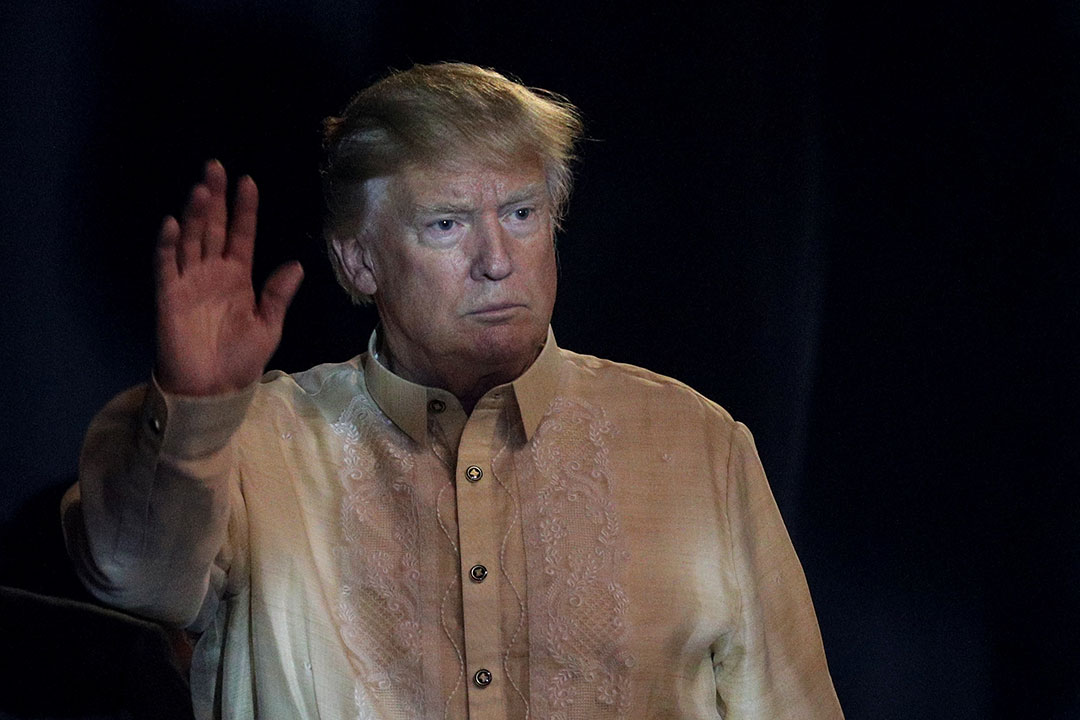
What Trump policies could bring for PHL

By Revin Mikhael D. Ochave, Reporter
UNITED STATES PRESIDENT Donald J. Trump’s recent policy announcements have mixed implications for the Philippines, with potential benefits from lower energy prices due to boosted US oil and gas production but concerns over US inflation and protectionist trade policies that could affect the Philippine economy and its trade relationship with the US, according to analysts.
“President Trump’s orders and announcements that impact US inflation are quite mixed. On the one hand, there are measures designed to ultimately reduce inflation. On the other hand, the proposed 25% tariffs on Canada and Mexico could drive up US inflation since the US imports nearly $900 billion of goods from those countries,” China Bank Capital Corp. Managing Director Juan Paolo E. Colet said in a Viber message.
“A sustained increase in US inflation would very likely push the Federal Reserve into a hawkish policy stance, which could in turn weaken the peso and limit the Bangko Sentral ng Pilipinas’ (BSP) room for interest rate cuts,” he added.
Following his inauguration on Tuesday, Mr. Trump signed a memorandum directing every federal agency to fight consumer inflation. He also hinted that 25% tariffs will be imposed on Canada and Mexico starting Feb. 1.
The local stock market was relatively flat following Mr. Trump’s inauguration.
The bellwether Philippine Stock Exchange index dropped by 0.15% or 9.68 points to 6,340.21, while the broader all shares index fell by 0.07% or 2.62 points to 3,700.24.
AP Securities, Inc. Research Head Alfred Benjamin R. Garcia said Mr. Trump’s focus on oil and gas could be beneficial to the Philippines.
“One thing that stands out is his mandate to boost oil production and lift the export ban on liquefied natural gas (LNG) exports, which should help lower energy prices and translate to lower inflation for us here in the Philippines,” Mr. Garcia said in a Viber message.
One of Mr. Trump’s first-day executive orders (EOs) resumes processing export permits for new LNG projects to boost US energy production.
“This first batch of EOs focused mostly on domestic issues, and we’re not yet seeing details on his planned executive actions that would have significant impacts on the global economy, such as tariffs,” Mr. Garcia said.
Philippine President Ferdinand R. Marcos, Jr. recently signed Republic Act No. 12120 or the Philippine Natural Gas Industry Development Act to develop the country’s natural gas industry.
The Philippines is seeking other sources of energy as the Malampaya gas field, which supplies a fifth of all power generated in the country, is expected to run out of easily recoverable gas by 2027.
Mr. Colet also noted that Mr. Trump’s move to direct federal agencies to investigate US trade practices could be a potential concern for the Philippines.
“He has ordered an investigation into trade practices and deficits, so that is something that should concern us because the Philippines is a net exporter to the US. Hopefully, our special relationship with the US and the relatively small trade deficit they have with us will spare our country from any major tariffs,” he said.
“Trump’s key pronouncements so far are generally in line with market expectations. There’s nothing there yet that is immediately and materially adverse to our country’s economy,” he added.
Meanwhile, COL Financial Group, Inc. Chief Equity Strategist April Lynn Lee-Tan said in a Viber message that the impact of Mr. Trump’s policies on the Philippines will depend on how it affects US bond rates and the dollar.
For his part, Rizal Commercial Banking Corp. Chief Economist Michael L. Ricafort said that Mr. Trump’s protectionist policies could lead to higher US inflation.
“More protectionist policies by Mr. Trump could lead to higher tariff rates on imports from China and other countries, while tighter immigration rules could increase US labor costs, all of which would lead to higher overall US inflation,” he said in a Viber message.



